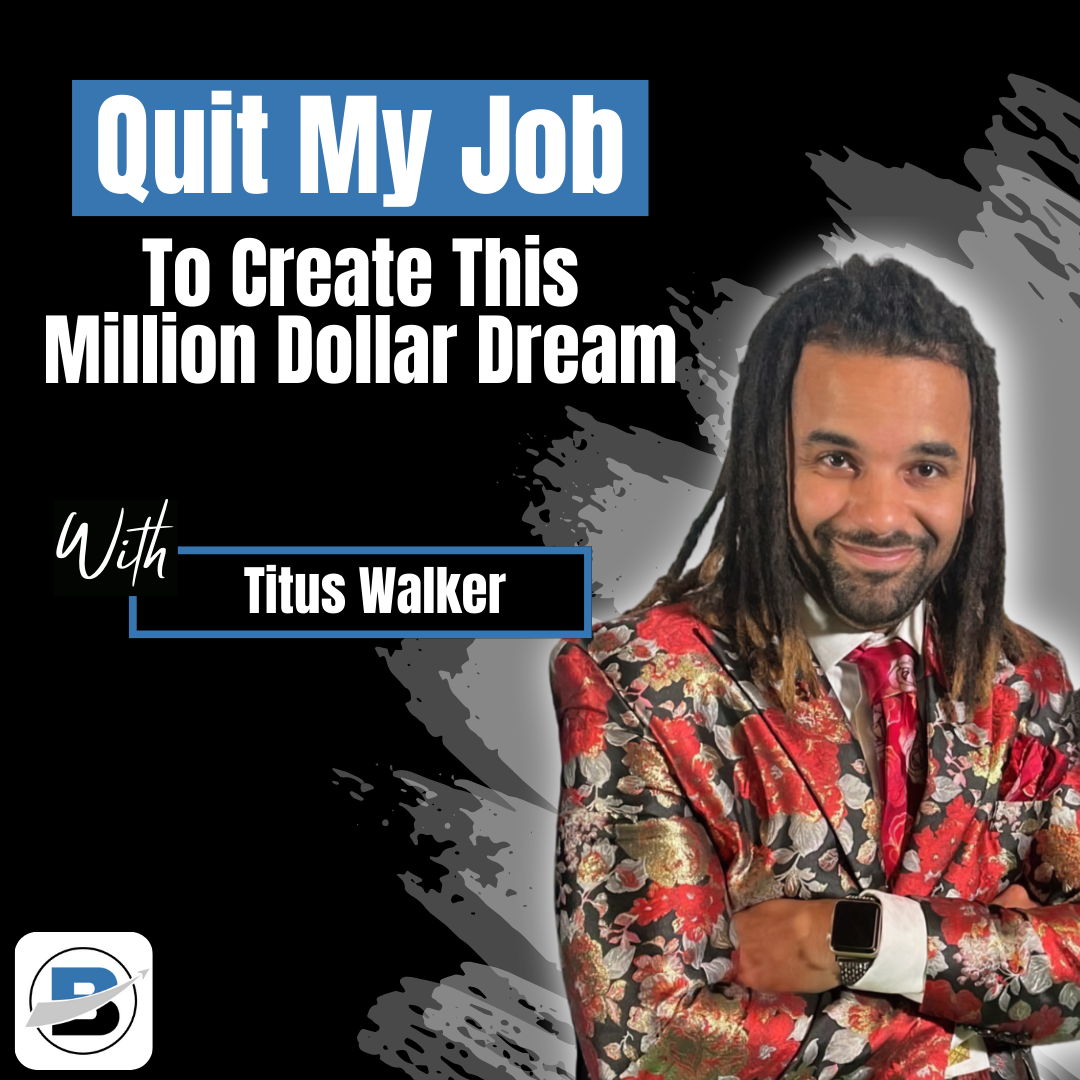Building a Thriving Esports Community: Lessons from Titus Walker and UEL
Introduction
Esports has transformed into a multi-billion-dollar industry, creating careers and inspiring millions of fans worldwide. But for aspiring entrepreneurs and small business owners, the question remains: how can you create a sustainable model and loyal community in a rapidly evolving space?
Titus Walker, founder of UEL Esports, has done just that. In this article, we explore how Titus used his vision, insight, and an audience-first approach to build a thriving Esports platform, offering valuable lessons for entrepreneurs aiming to carve out their niche in competitive industries.
The Evolution of Legacy Games in Esports
The concept of “Legacy Games” is foundational to understanding how the Esports industry operates. Legacy games, such as Call of Duty and League of Legends, have built massive followings and dedicated communities over years, creating iconic cultural moments that stand the test of time. These games form a significant part of the Esports ecosystem, serving as pillars of competition that engage both players and viewers alike.
Titus Walker highlights how, in the early days of gaming, only a few developers controlled the market, producing a limited number of games each year. Back then, gamers had fewer choices, which allowed these titles to gain massive followings. However, today’s landscape is different; with over 50,000 games released annually, capturing attention is harder than ever. New developers face intense competition from both established titles and the endless stream of new releases. This shift has impacted the longevity of games, making it harder for new releases to establish themselves as esports staples.
For UEL Esports, positioning itself within this crowded space meant creating something unique. By leveraging legacy games that already have built-in communities, UEL established itself as a community-oriented platform rather than just another organization running tournaments. This strategy is particularly relevant for entrepreneurs who want to launch products in highly competitive markets. Rather than going head-to-head with established giants, focusing on niche or underserved areas can help build a loyal following.
How UEL Esports Created Its Own Unique Space
Esports is saturated with leagues, teams, and influencers, making it difficult for new players to gain traction. However, UEL Esports has managed to differentiate itself by centering its operations around community involvement. Titus recognized that UEL needed to offer something distinct, and so he created a model that goes beyond the typical tournament structure by fostering genuine connections with players and fans.
For instance, UEL Esports is structured to appeal to both competitive gamers and casual players by hosting events that cater to a wide range of skill levels. This inclusive approach has allowed UEL to build a strong, lasting community rather than simply chasing temporary engagement through individual events. As Titus puts it, authenticity is the cornerstone of creating a loyal community.
This approach is especially valuable for new entrepreneurs and small business owners who are looking to differentiate themselves. Building a community requires understanding and fulfilling the needs of your audience in a way that resonates authentically. UEL Esports does not just cater to the competitive nature of esports; it creates a welcoming environment where gamers feel valued. In a crowded market, authenticity can be a powerful differentiator that keeps customers coming back.
The Key to Building a Thriving Community: Listening to Your Audience
If there’s one piece of advice that Titus emphasizes for entrepreneurs, it’s the importance of listening to your audience. A thriving community isn’t built by imposing products or ideas on people; it’s about responding to their needs and wants. When UEL works with colleges to build esports programs, Titus and his team don’t assume what students want. Instead, they conduct surveys, asking students about the games they already enjoy, and then build competitions around those preferences.
Listening first is not only respectful but strategic. Understanding what your audience wants allows you to create tailored experiences, which in turn fosters stronger loyalty and engagement. For entrepreneurs, this is essential. Whether you’re launching a new product, service, or community, gathering feedback early on can be the difference between success and failure.
After listening, Titus advises doing the research to fully understand what your audience is telling you. For example, in gaming, understanding player jargon, game mechanics, and community norms is crucial to creating an environment where people feel understood and valued. This level of attention to detail is applicable to any industry. When customers feel understood, they’re more likely to support your business and spread the word.
The Power of Vision: How a Big-Picture Mindset Drives Success
One of Titus Walker’s most powerful insights is the importance of having a big-picture mindset. Entrepreneurship is challenging, and without a clear, long-term vision, it’s easy to get lost in the day-to-day struggles. Titus likens this vision to a house so large that it remains visible even when obstacles arise in front of you. This kind of clarity is crucial, especially when challenges and setbacks threaten to derail your progress.
For Titus, UEL Esports represents more than just a business - “...it’s a platform for building a thriving, connected gaming community”. This strong sense of purpose helps him stay focused and motivated, no matter the obstacles he faces. Aspiring entrepreneurs can benefit from this mindset by identifying a purpose that resonates deeply with them. When your vision is compelling enough, it becomes easier to overcome obstacles, and you’ll feel driven to push through setbacks.
For business owners, a clear vision provides direction for growth and can help align your team with your mission. Your big-picture vision becomes a guiding force that sustains your momentum and helps you make strategic decisions that support long-term success.
Titus’s Top Advice for New Entrepreneurs: Building Community and Growing Business
In addition to his insights on community-building, Titus shares valuable advice on what it takes to succeed as an entrepreneur. His central message is clear: focus on building a community by actively listening, adapting, and creating meaningful connections.
Entrepreneurs in any industry can take a page from Titus’s playbook by focusing on customer feedback, refining their products based on actual needs, and building an authentic brand. This process not only strengthens the relationship with your audience but also drives sustainable growth.
Community-building is about consistency and genuine care. Titus points out that it’s not about pushing products or ideas but about understanding people and catering to their preferences. In the long run, this approach is far more rewarding and can turn customers into advocates.
Book Recommendations for Young Entrepreneurs and Business Owners
Throughout his journey, Titus Walker has drawn inspiration from several impactful books that have helped him grow as an entrepreneur. Here are some of his top recommendations:
The 7 Habits of Highly Effective People, by Stephen R. Covey:
This classic offers practical guidance on building effective habits, from goal-setting to time management. Covey’s principles are essential for entrepreneurs who want to create a balanced, organized approach to their business.
Rich Dad Poor Dad, by Robert Kiyosaki:
Titus views this book as a foundational text for learning financial literacy. It’s particularly valuable for young entrepreneurs looking to build wealth and understand the importance of investing.
Tax-Free Wealth, by Tom Wheelwright:
Taxes can be a significant burden on any business, and Titus emphasizes the importance of learning about tax strategies. For entrepreneurs generating income, understanding how to leverage tax benefits can be a game-changer in retaining more profits for growth.
Almost a Billionaire book series, by Bridget E. Baker:
This lesser-known book had a profound impact on Titus, providing insight into how close one can come to achieving financial success with persistence and determination. It’s a motivational read for entrepreneurs who need encouragement to keep pushing forward.
These resources provide practical guidance and inspiration, helping entrepreneurs build the knowledge and resilience needed for success. Titus’s choices reflect a commitment to ongoing learning, an essential trait for anyone looking to grow in business.
Connecting with Titus Walker and UEL Esports
For those inspired by Titus Walker’s story, connecting with him and following UEL Esports is a great way to learn more. UEL Esports is active on multiple social media platforms, providing insights into their latest events, gaming news, and community initiatives. Here’s how you can stay updated:
Following UEL’s social media platforms and website offers a behind-the-scenes look into how Titus and his team foster a supportive community in esports.
Conclusion
Titus Walker’s journey with UEL Esports provides a roadmap for young entrepreneurs and small business owners looking to carve out their space in competitive markets. Through a combination of vision, community-focused strategies, and a commitment to listening to his audience, Titus has built a platform that resonates deeply with gamers and fans alike. His story reminds us that with the right mindset and approach, we can overcome challenges, create meaningful connections, and build businesses that stand the test of time.
For aspiring entrepreneurs, the lessons from Titus’s journey can be applied across various industries: stay true to your vision, build community with genuine care, and never stop learning. We hope you’ll tune in to the Brothers Frontier Podcast to explore more stories like Titus’s, and we encourage you to start building the community that will elevate your entrepreneurial journey.

